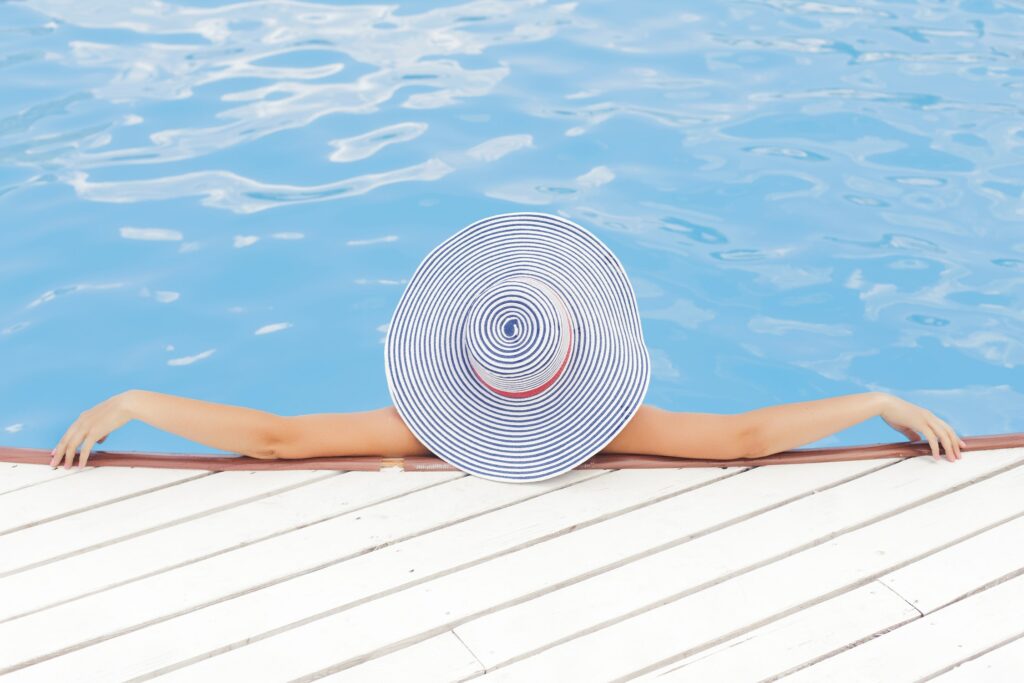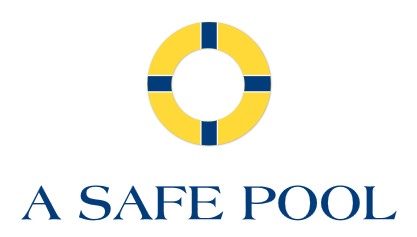Swimming pool accidents don’t have to involve being in the swimming pool itself. In fact thousands of pool injuries a year–both minor and major–happen in pool areas without the victim ever entering the water. Many of these accidents are easily avoided with a little caution, an eye toward prevention, and persistence in promoting a safer pool environment for your friends, family, and pets. By doing what you can to eliminate risks and understanding how to react when accidents and emergencies happen, you can help ensure your pool time doesn’t end in injury.
Promoting Safety Consciousness
Especially when children will be using the pool, adopting and sharing a mindset geared toward safety awareness is important. The lessons you teach will help make sure they’re not only safer in your pool area, but when they visit their friends’ pools or public swimming spaces as well. This means you can have an impact on limiting swimming pool accidents when you aren’t even around. Educating those around you to help watch more and mitigate hazards ensures that everyone’s fun will be safer.
Being Ready When Disaster Strikes
Another way to prevent pool injuries from becoming worse is learning how to manage them when they do happen. Consider getting your American Red Cross certification in CPR and first aid. These vital skills will help you understand how to better respond to swimming pool accidents in and out of the water, know whether you can treat them yourself or if medical intervention is required, and give you the confidence to take action when it’s needed.
Five Injuries That Are Common Outside Of The Pool
- Scrapes – Skinned knees are a part of an active childhood. That doesn’t make them any less painful. Usually caused by a slip or trip, this happens when the skin rubs against a hard, rough object, creating small, superficial tears. While these often are small and relatively insignificant, larger scrapes, such as those caused by running on the pool deck, tripping, and sliding to a stop on concrete, can cover substantially more skin area.As one of the (usually) more minor swimming pool accidents, initial treatment is relatively straightforward. Simply apply some antiseptic lotion or spray and cover smaller scrapes with a waterproof bandage. Larger scrapes may end pool time for the day, as chlorinated water can cause a stinging sensation. The goal remains limiting the potential for immediate infection until the body’s own infection defenses take over.
- Cuts – Deeper than scrapes, these swimming pool accidents happen when something pierces and splits the skin. These can especially panic younger children. These can be caused by any sharp edge that the skin rubs against, including sticks, sharp rocks, exposed nails, or any exposed metal corner. They are also the reason glass should never be taken into the pool area. On its own, shattered glass is a cut hazard, but under water it can become almost invisible, making pool injuries a near certainty.Examine the cut carefully. A shallow, clean cut can be managed with antiseptic and waterproof bandages, although swim time may be over. Deeper cuts and cuts that have material in them, such as shards of glass, may require stitches and a trip to the emergency room to ensure all foreign particulate is removed. If so, do your best to apply pressure on the wound or above it if particle is present, keep the area elevated, and get medical care immediately.

- Concussions – Another of the swimming pool accidents that often result from a slip, trip, or fall, concussions occur when the brain is jostled too hard by an impact, such as a fall where the head impacts the ground. It can cause confusion, headaches, and even a loss of consciousness. In the pool area, this can be incredibly dangerous as the victim, their state of mind compromised, could end up in the water, unable to save themselves.Concussions are serious injuries. If the victim is in the water, they need to be removed immediately, even if conscious. Help them sit or lay in an area out of the sun and evaluate their condition. Children who are exhibiting signs of a concussion should always be observed closely and a medical professional consulted. Adults may be better able to manage minor symptoms such as a slight headache, but any disorientation or loss of consciousness is concerning enough that they should also seek medical evaluation.
- Broken Bones – Some of the most severe swimming pool accidents may result in broken bones. Whether the result of horseplay around the pool, running and falling badly, or simply rolling an ankle hard on uneven ground, a break or fracture needs immediate medical attention. Broken bones can lead to swelling, bruising, and potential internal injuries quickly, so time is of the essence.If you’ve been trained, you can attempt to immobilize an affected appendage. Otherwise, it’s best to see that the victim reaches an emergency room as soon as possible. This may mean calling an ambulance or assigning someone to drive them there immediately. A break is not something you can treat at home.
- Electrical Injuries – Electricity and water don’t mix, and when they come together, swimming pool accidents can turn into tragedies. The only electrical devices near a pool are those specifically designed to be waterproof or installed by a professional familiar with working on electric pool features. One of the fastest rising new electrical hazards is charging cables, as their relatively small output is not respected, although in the presence of water it can still prove fatal.If you suspect an electrical accident, do not approach or touch the victim. Instead, look for the source of the electrical current and try to unplug or shut it off without entering the hazard area yourself. Otherwise instead of one victim, there may be two. Immediate medical attention is needed and an experienced electrician should be contacted after the fact to eliminate the hazard if necessary.
Dedicated To Safer Pools
With a little caution, everyone can have a fun time at the pool without it ending with swimming pool accidents and pool injuries. If you have any questions about how a safety pool cover or pool fencing can help you create a safer pool environment, contact our experts at 866-651-POOL. Watch the A Safe Pool Blog for more tips on keeping your water retreat safe and fun.
